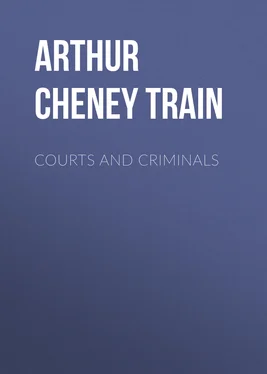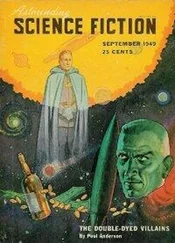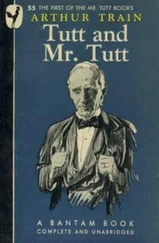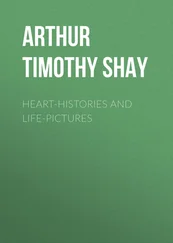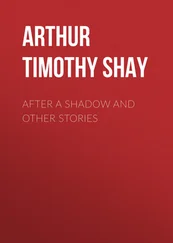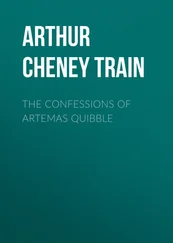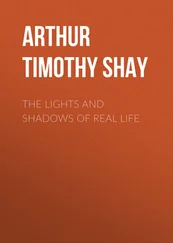Arthur Train - Courts and Criminals
Здесь есть возможность читать онлайн «Arthur Train - Courts and Criminals» — ознакомительный отрывок электронной книги совершенно бесплатно, а после прочтения отрывка купить полную версию. В некоторых случаях можно слушать аудио, скачать через торрент в формате fb2 и присутствует краткое содержание. Жанр: foreign_antique, Юриспруденция, Юриспруденция, на английском языке. Описание произведения, (предисловие) а так же отзывы посетителей доступны на портале библиотеки ЛибКат.
- Название:Courts and Criminals
- Автор:
- Жанр:
- Год:неизвестен
- ISBN:нет данных
- Рейтинг книги:4 / 5. Голосов: 1
-
Избранное:Добавить в избранное
- Отзывы:
-
Ваша оценка:
- 80
- 1
- 2
- 3
- 4
- 5
Courts and Criminals: краткое содержание, описание и аннотация
Предлагаем к чтению аннотацию, описание, краткое содержание или предисловие (зависит от того, что написал сам автор книги «Courts and Criminals»). Если вы не нашли необходимую информацию о книге — напишите в комментариях, мы постараемся отыскать её.
Courts and Criminals — читать онлайн ознакомительный отрывок
Ниже представлен текст книги, разбитый по страницам. Система сохранения места последней прочитанной страницы, позволяет с удобством читать онлайн бесплатно книгу «Courts and Criminals», без необходимости каждый раз заново искать на чём Вы остановились. Поставьте закладку, и сможете в любой момент перейти на страницу, на которой закончили чтение.
Интервал:
Закладка:
This natural presumption of guilt from the mere fact of the charge is rendered all the more likely by reason of the uncharitable readiness with which we believe evil of our fellows. How unctuously we repeat some hearsay bit of scandal. "I suppose you have heard the report that Deacon Smith has stolen the church funds?" we say to our friends with a sententious sigh—the outward sign of an invisible satisfaction. Deacon Smith after the money-bag? Ha! ha! Of course, he's guilty! These deacons are always guilty! And in a few minutes Deacon Smith is ruined forever, although the fact of the matter may well have been that he was but counting the money in the collection-plate. This willingness to believe the worst of others is a matter of common knowledge and of historical and literary record. "The evil that men do lives after them—" It might well have been put, "The evil men are said to have done lives forever." However unfair, this is a psychologic condition which plays an important part in rendering the presumption of innocence a gross absurdity.
But let us press the history of Jones and Robinson a step further. The next event in the latter's criminal history is his appearance in court before a magistrate. Jones produces his evidence and calls his witnesses. Robinson, through his learned counsel, cross-examines them and then summons his own witnesses to prove his innocence. The proceeding may take several days or perhaps weeks. Briefs are submitted. The magistrate considers the testimony and finally decides that he believes Robinson guilty and must hold him for the action of the grand jury. You might now, it would perhaps seem, have some reason for suspecting that Robinson was not all that he should be. But no! He is still presumed in the eyes of the law, and theoretically in the eyes of his fellows, to be as innocent as a babe unborn. And now the grand jury take up and sift the evidence that has already been gone over by the police judge. They, too, call witnesses and take additional testimony. They likewise are convinced of Robinson's guilt and straightway hand down an indictment accusing him of the crime. A bench warrant issues. The defendant is run to earth and ignominiously haled to court. But he is still presumed to be innocent! Does not the law say so? And is not this a "government of laws"? Finally, the district attorney, who is not looking for any more work than is absolutely necessary, investigates the case, decides that it must be tried and begins to prepare it for trial. As the facts develop themselves Robinson's guilt becomes more and more clear. The unfortunate defendant is given any opportunity he may desire to explain away the charge, but to no purpose.
The district attorney knows Robinson is guilty, and so does everybody else, including Robinson. At last this presumably innocent man is brought to the bar for trial. The jury scan his hang-dog countenance upon which guilt is plainly written. They contrast his appearance with that of the honest Jones. They know he has been accused, held by a magistrate, indicted by a grand jury, and that his case, after careful scrutiny, has been pressed for trial by the public prosecutor. Do they really presume him innocent? Of course not. They presume him guilty. "So soon as I see him come through dot leetle door in the back of the room, then I know he's guilty!" as the foreman said in the old story. What good does the presumption of innocence, so called, do for the miserable Robinson? None whatever—save perhaps to console him in the long days pending his trial. But such a legal hypocrisy could never have deceived anybody. How much better it would be to cast aside all such cant and frankly admit that the attitude of the continental law toward the man under arrest is founded upon common sense and the experience of mankind. If he is the wrong man it should not be difficult for him to demonstrate the fact. At any rate circumstances are against him, and he should be anxious to explain them away if he can.
The fact of the matter is, that in dealing with practical conditions, police methods differ very little in different countries. The authorities may perhaps keep considerably more detailed "tabs" on people in Europe than in the United States, but if they are once caught in a compromising position they experience about the same treatment wherever they happen to be. In France (and how the apostles of liberty condemn the iniquity of the administration of criminal justice in that country!) the suspect or undesirable receives a polite official call or note, in which he is invited to leave the locality as soon as convenient. In New York he is arrested by a plainclothes man, yanked down to Mulberry Street for the night, and next afternoon is thrust down the gangplank of a just departing Fall River liner. Many an inspector has earned unstinted praise (even from the New York Evening Post) by "clearing New York of crooks" or having a sort of "round-up" of suspicious characters whom, after proper identification, he has ejected from the city by the shortest and quickest possible route. Yet in the case of every person thus arrested and driven out of the town he has undoubtedly violated constitutional rights and taken the law into his own hands.
What redress can a penniless tramp secure against a stout inspector of police able and willing to spend a considerable sum of money in his own defence, and with the entire force ready and eager to get at the tramp and put him out of business? He swallows his pride, if he has any, and ruefully slinks out of town for a period of enforced abstinence from the joys of metropolitan existence. Yet who shall say that, in spite of the fact that it is a theoretic outrage upon liberty, this cleaning out of the city is not highly desirable? One or two comparatively innocent men may be caught in the ruck, but they generally manage to intimate to the police that the latter have "got them wrong" and duly make their escape. The others resume their tramp from city to city, clothed in the presumption of their innocence.
Since the days of the Doges or of the Spanish Inquisition there has never been anything like the morning inspection or "line up" of arrested suspects at the New York police head-quarters.* (*Now abolished.) One by one the unfortunate persons arrested during the previous night (although not charged with any crime) are pointed out to the assembled detective force, who scan them from beneath black velvet masks in order that they themselves may not be recognized when they meet again on Broadway or the darker side streets of the city. Each prisoner is described and his character and past performances are rehearsed by the inspector or head of the bureau. He is then measured, "mugged," and, if lucky, turned loose. What does his liberty amount to or his much-vaunted legal rights if the city is to be made safe? Yet why does not some apostle of liberty raise his voice and cry aloud concerning the wrong that has been done? Are not the rights of a beggar as sacred as those of a bishop?
One of the most sacred rights guaranteed under the law is that of not being compelled to give evidence against ourselves or to testify to anything which might degrade or incriminate us. Now, this is all very fine for the chap who has his lawyer at his elbow or has had some similar previous experience. He may wisely shut up like a clam and set at defiance the tortures of the third degree. But how about the poor fellow arrested on suspicion of having committed a murder, who has never heard of the legal provision in question, or, if he has, is cajoled or threatened into "answering one or two questions"? Few police officers take the trouble to warn those whom they arrest that what they say may be used against them. What is the use? Of course, when they testify later at the trial they inevitably begin their testimony with the stereotyped phrase, "I first warned the defendant that anything which he said might be used against him." If they did warn him they probably whispered it or mumbled it so that he didn't hear what they said, or, in any event, whether they said it or not, half a dozen of them probably took him into a back room and, having set him with his back against the wall, threatened and swore at him until he told them what he knew, or thought he knew, and perhaps confessed his crime. When the case comes to trial the police give the impression that the accused quietly summoned them to his cell to make a voluntary statement. The defendant denies this, of course, but the evidence goes in and the harm has been done. No doubt the methods of the inquisition are in vogue the world over under similar conditions. Everybody knows that a statement by the accused immediately upon his arrest is usually the most important evidence that can be secured in any case. It is a police officer's duty to secure one if he can do so by legitimate means. It is his custom to secure one by any means in his power. As his oath, that such a statement was voluntary, makes it ipso facto admissible as evidence, the statutes providing that a defendant cannot be compelled to give evidence against himself are practically nullified.
Читать дальшеИнтервал:
Закладка:
Похожие книги на «Courts and Criminals»
Представляем Вашему вниманию похожие книги на «Courts and Criminals» списком для выбора. Мы отобрали схожую по названию и смыслу литературу в надежде предоставить читателям больше вариантов отыскать новые, интересные, ещё непрочитанные произведения.
Обсуждение, отзывы о книге «Courts and Criminals» и просто собственные мнения читателей. Оставьте ваши комментарии, напишите, что Вы думаете о произведении, его смысле или главных героях. Укажите что конкретно понравилось, а что нет, и почему Вы так считаете.
